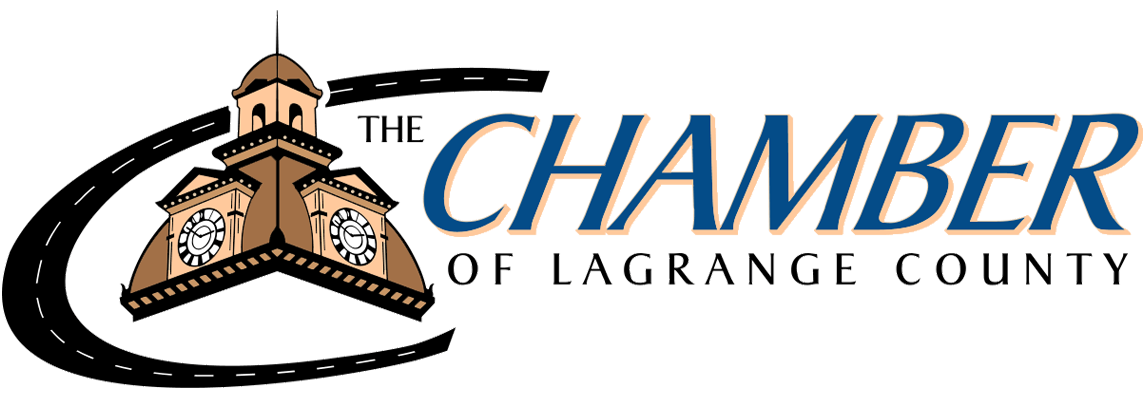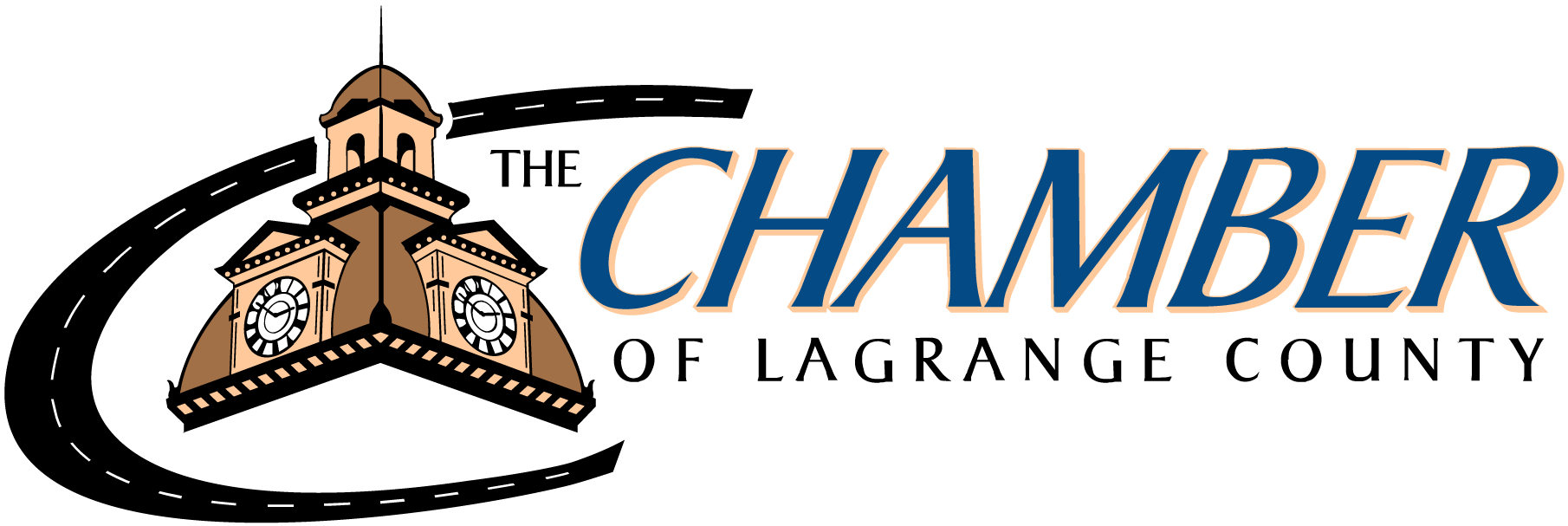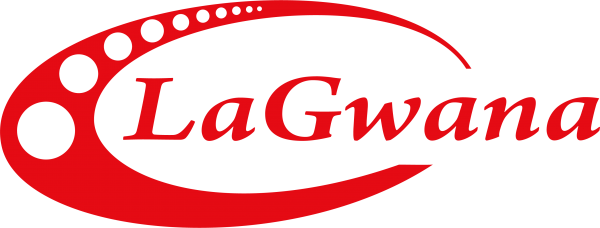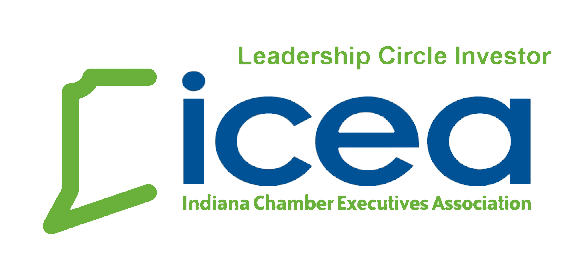Suzanne Clark's 2024 State of American Business Remarks
Remarks as delivered by Suzanne P. Clark, President and CEO of the U.S. Chamber of Commerce, at the State of American Business event on January 11, 2024.
It’s a new year. It is an election year. It is a presidential election year. And we’re all being inundated with everything wrong, and bad, and dire about this country, or this moment.
Don’t take my word for it—just read the headlines:
“New Poll Finds Growing Pessimism About the Direction of the United States.”
“Media Polarization Intensifies, Deepening Divisions Across the Nation.”
“Erosion of Soft Power: U.S. Struggles to Maintain Influence in Global Affairs.”
“Democracy Under Pressure: Concerns Mount Over the Health of U.S. Institutions.”
“Public Trust in Government, Media, and Big Institutions at Record Lows.”
If that’s all we’re hearing all day, every day, from all sides, well, things are going to seem pretty bleak, aren’t they? Bad news sells and negative campaigning works. They feed this constant loop of pessimism. And if the business community isn’t out there telling the real story—the American story—of opportunity and progress in this country, then no one should be surprised when people believe it’s as bad as the headlines and the political ads say it is.
Does America have challenges? You bet we do. Are we, at the U.S. Chamber of Commerce, pessimistic about it? Not on your life. In fact, we are optimistic. And today, I’m going to tell you why.
Thanks to technology, we’re able to bring this message to thousands of people all across America and in more than 100 countries when just a few years ago, it would be about 500 people gathered here in this Great Hall.
If I could look into the faces of the thousands of business leaders who are joining us today, I know I would see optimism in your eyes. How can I know that? Because I believe in you and what you do.
Every morning, when you flip the OPEN sign around and welcome customers into the business you run or you built—that’s optimism. Every time you tell someone, “You got the job”—that’s optimism. Every two weeks, when you sign the front of a paycheck—that’s optimism. When you try a new technology, when you launch a new product or service, when you sell into a new market, when you make a five-year plan, or when you simply show up for work and give the best of what you’ve got—your energy, your ideas, your talent—it’s all optimism.
No matter what kind of work you do, it’s hard—it takes guts, courage, and perseverance. It’s fraught with risks, uncertainty, and sometimes just bad luck. You wouldn’t do it without a drive to make a difference, ambition for success, and hope for the future.
So, ladies and gentlemen, the State of American Business is optimistic. And this country, its citizens and leaders, and our partners around the world need to hear it.
Now, you may have come here expecting me to talk about some of the 300 policy issues the Chamber will advance this year; the laws we’ll shape; the regulations we’ll improve—or stop; the lawsuits we’ll file—and win; the pro-growth candidates we’ll support; or the 20,000 small businesses we help on our CO—website every day.
Given the state of the world, you may have come expecting a global speech, focused on the commercial diplomacy the Chamber will lead; the consequential presidential elections also happening around the world; the business delegations we’ll send to every continent except Antarctica; the heads of states we’ll host here in this building.
But today, I’m going to use this platform to talk about something bigger than a policy agenda. Something more enduring than the challenges and opportunities we’ll confront in 2024, and more essential than one election in the long arc of our nation’s history.
Today, I’m going to talk about the idea that underpins it all—the system that enables your success and ensures our future: American free enterprise.
We’ve stopped talking about what it means to be pro-business as a country. That’s a problem—and it’s a shame. There are plenty of critics who want to tell you everything that is wrong with capitalism. But the truth is, it’s a good news story. It’s a story of individual opportunity and agency. It’s a story of collective hope and optimism. And more than a story, it’s a lived reality that has improved life here and inspired people around the world.
The Case for Free Enterprise
So, all of us here at the U.S. Chamber want to counter-program against the negativity. Our mission and Shared Purpose is to defend, protect, and promote free enterprise—and we’ve been doing that for 112 years.
But we can’t do it alone. Just like any single business or individual worker can’t improve lives or solve problems at scale on their own, we too need the collective power and unified voice of businesses working together, getting louder, and drowning out the negativity with our words and our work.
The miracle of the free enterprise system is that it takes individual potential and force multiplies it for the benefit of all. It takes specific problems and solves them at scale. It turns scarcity into abundance. It is an upward spiral of human progress, fueled by the ambition and striving of people and supercharged by the innovation of American business—and there’s no limit, no ceiling for what humankind can achieve.
I want to talk first about what goes into free enterprise. The essential building blocks are the ideas, ingenuity, and imagination of people. Individual effort, knowledge, skills, and expertise aggregate and accelerate to create new and better ideas. This enables us to achieve more and greater things together than we ever could alone.
Many people will choose to take their idea and run with it, taking a leap and starting a business—some will stay small, others will grow large, all will contribute value to our economy and our society. The optimism of entrepreneurship in this country remains strong, evidenced by the record-breaking 5.5 million new business starts last year.
More still—about 134 million workers—will find opportunity and achievement, dignity and pride in a private-sector job.
Businesses—large and small—are what help bring our ideas to life and share them with others, not just in our own communities, but across the country and around the world.
I’ve always preferred words that describe business in terms of human connection. Company—the condition of being with others. Organization—a body of people with a particular purpose. Team—a group of individuals playing unique roles to achieve a common goal.
That’s what businesses do—they harness human talent and potential and make it exponentially more productive.
Here’s what businesses add—they build the operating models to scale the work and generate widespread value; they raise the capital to invest in ideas and turn them into innovations; they create supply chains to source materials and reach customers; they manage the resources, systems, and networks needed to solve complex problems; above all, they make sure everyone in the long chain of bringing an idea to market gets rewarded for their contributions through payments, salaries, wages, health benefits, retirement savings, and more.
All of those things working together is what enables people, through business, to serve others, solve problems, and strengthen society. Ideas, products, services, and solutions are then tested in the market.
A few years ago at this event, I quoted my former business school professor who used to say, “The market is not your mama. It’s not going to love you just because you exist.” You have to earn your place in the markets by fulfilling a need or solving a problem—and keep your place in the markets by continually delivering what people want and will pay for and adapting and innovating when their demands change.
That’s why anyone who says business is driven by self-interest is right. It is fundamentally in businesses’ interests to serve the interests of their customers and their teams—because if they don’t, in a market system, they will fail.
Yes, markets are competitive. The cynic sees it as a zero-sum-game—they’re wrong. An optimist rightly sees competition as a creative force. Failure leads to learning—and is often a prerequisite for success. Winners take their profits and find new problems to solve. Competitors learn from others’ success and drive continued advancement. And what about the bad actors whose aim is to exploit? Those who seek to gain without giving in return? Markets reject them.
Markets are also collaborative. They enable people across a supply chain who’ve never even met to integrate and innovate remarkably complex products that no single person or company could make alone.
And markets are dynamic! If you look at the top 10 companies by market cap, you’ll see that not one of the companies on the list 30 years ago is still on that list today. If you look at the list over time, you see companies move in, up, out, back in, and so on.
Add it all up, and the biggest winners are all of us. Our families, our communities, our country, and our world.
This brings me to what we get from this remarkable system, both as individuals and as a society.
Free Enterprise Improves Life and Opportunity
American free enterprise has made life better.
Before the pandemic disrupted our economy and basic way of life, the U.S. achieved historic levels of employment, real wages, and standard of living. And because of the resilience and resourcefulness of the private sector, we have since surpassed many of those pre-pandemic milestones.
People have more choices than they’ve ever had, whether it’s for breakfast cereal, sneakers, or career paths. We can reach more places in the world, more efficiently and affordably. The cars, planes, and trains that get us there are safer than they’ve ever been. More diseases have cures and treatments—most of us will live to know our grandchildren. We have found a solution for isolation—we have the internet at our fingertips and can access it from almost anywhere to reach friends and family around the globe.
Now, a common critique about the system is that it generates a lot more wealth for some than almost everyone else. The Swedish author and historian Johan Norberg explained in his excellent new book, The Capitalist Manifesto, that while the differences between income levels in the U.S. have indeed grown wider, the data show that Americans’ ability to climb to higher brackets has not decreased. The American middle class has shrunk because more people are moving up and out of it.
This data should not discount the experience of those who are in that bottom quintile trying to move up—or simply make ends meet. Macro trends, academic arguments, facts and figures probably feel very far from their reality. And it’s important that they see—and feel—the upward effects of a strong economy. And that’s where growth comes in, which I’ll talk about in a moment.
There’s something else we often don’t think about in the debate around wealth and well-being. Nearly all consumers, regardless of income level, are able to buy essentially the same things that meaningfully improve life: dishwashers, washing machines, cars, smartphones. If that sounds quaint, look back 60 years ago when, for example, barely a third of American households had air conditioning. Free enterprise has made life simpler and better for everyone by scaling technologies, expanding choice, driving down prices, and boosting every American’s buying power.
Moreover, society as a whole reaps the outsize benefits of market-driven innovations. You might think about world-changing technologies—the internet, the smartphone, the social network, AI—as invaluable. But economists found a way to quantify what they call the “social surplus”—98% of the value of a new technology goes to the billions of people who use it, while the company or entrepreneur who invented it gets about 2%. That’s a value ratio of 50:1.
Free enterprise also fuels the economic growth that pays for everything a society needs.
A faster-growing economy generates more tax revenues to pay for education, defense, basic research, transit and infrastructure, and the social safety net. It fuels philanthropy and funds the arts, entertainment, and culture that enrich our lives. Most importantly, growth puts more money in people’s pockets so they can care for their families and pursue their goals.
As Norberg wrote, “The best way to create inclusive growth is to increase growth for everyone and keep it up.” That’s why—in advancing our mission—the Chamber staunchly advocates for policies that are pro-growth.
Finally, free enterprise has not only improved life and opportunity here in the U.S. It has served the cause of humanity around the world in astonishingly effective ways. Over the past few decades, a move to market liberalization; the establishment of a fair, rules-based trading system; and democracies choosing to foster competition in their economies have resulted in:
A 70% reduction in extreme global poverty;
A rise in global life expectancy from 64 years to 73;
A plummet in illiteracy rates from 25.7% to 13.5%; and
A decrease in child labor from 16% to less than 10%.
Anyone not moved by those numbers might be moved by these words from another champion for capitalism—U2’s Bono. He said, “I’ve had an epiphany in recent years. It has upended everything for me. In dealing with poverty here and around the world, welfare and foreign aid are a Band-Aid. Free enterprise is a cure. Entrepreneurship is the most sure way of development.”
It’s true. Countries that have liberalized their economies have higher wages, better health outcomes, safer environments, better human rights, and stronger democracies. What’s not true are claims that these global gains have come at America’s expense. As other economies rose, so did ours—over the same period in the U.S., wages at every income level increased by 50%; American industry expanded its output by more than half; and unemployment fell to record lows.
Let’s be very clear: In a global economy—and in fragile geopolitical times—it is in America’s best interest for other economies to grow and succeed through free markets. Prosperous nations are stable nations—they become partners, allies, and ballasts against authoritarianism.
A global trend of protectionism—including here in the U.S.—puts all of this at risk. To turn inward—to throw up trade barriers, impose tariffs, stop doing trade deals, reactively repatriate supply chains—is to inflict harm on our own economy. It robs our businesses and workers of new opportunities, and it raises prices for every American.
Like the free markets, the global economy is not a zero-sum game. Someone else doesn’t have to lose for us to win. On the contrary—the rise of the rest means new customers, new markets, and new allies, for us.
I’ve talked a lot today about what free enterprise has done—not to be nostalgic or to preserve the status quo or to tell people, “You’ve actually got it pretty good, so stop complaining.” It’s important to remind people of what free enterprise has done to build support for what free enterprise still must do—which is to find solutions to the greatest issues of our time.
We need free enterprise:
To revitalize communities that were left behind in the modern economy;
To rethink education in this country so every person has every opportunity to do and be and give their best;
To reskill and reposition the workforce for the future, so all people can keep up with the rapid pace of change;
To responsibly leverage AI and unleash a new era of human productivity;
To address climate change and lead the energy transition while powering our economies today; and
To solve global problems, from food insecurity to water scarcity.
That’s just naming a few of the challenges that require American innovation backed up by American values. If we don’t lead these solutions, we’ll be weaker in the long run. And if we don’t lead, who will?
On this, I am more than optimistic—I am confident—because we have the collective ambition and intelligence of people, the capacity and expertise of business, the discipline and discovery of the markets to solve any challenge we face, and an interconnected world to make the widest possible difference for humankind.
Government Has an Important Role to Play
What I haven’t talked a lot about is the government—and it also has an important role to play.
It’s not to manipulate the economy by picking the winners and losers. It’s not to micromanage businesses or direct their behavior for political reasons. And it’s not to overregulate industry into submission or failure.
The role of government is to foster the conditions that enable human potential and empower businesses to serve people, solve problems, and strengthen society. That means letting markets work and protecting them from government intrusion; passing pro-growth public policies that are workable and predictable; setting smart regulations that clearly signal to businesses the rules of the road; and exercising the fundamental duties of keeping the government open and running.
It means preserving the rule of law, ensuring a strong national defense, promoting trade and commerce at home and abroad. And it means supporting the entire ecosystem of business—every size and every industry, because the diversity of the American business community is exactly why our economy is the most innovative, dynamic, and resilient in the world.
Defending, Protecting, and Promoting Free Enterprise
It’s no accident that America provided the fertile ground for free enterprise to flourish. The people who founded this nation were dissatisfied with the world as it was and saw the world for what it could be. And they staked everything—their families and their futures—in pursuit of a new life and livelihood.
Whether those first entrepreneurs were optimistic or desperate, we cannot know. But what they created means we can lead our lives and chart our paths with a spirit of optimism, not a sense of desperation. We have freedom, we have opportunity, we have a future—and yes, it is bright.
The process of getting from there to here—from then to now—hasn’t been perfect. The system isn’t perfect. We’ve had to adapt, improve, evolve, correct, and solve along the way. And that’s exactly what free enterprise enables—in fact, it’s what it requires.
America must remain the fertile ground for progress. This cannot and will not be the place where opportunity and innovation wither on the vine. But, today, American free enterprise is under threat. It’s under threat from a small but powerful opposition of policymakers, political candidates, academics, and organizations—some who think it needs to be replaced and are spending tens of millions of dollars to that end. They are sowing the seeds of doubt—and if they succeed, they will limit your potential, stifle our growth, and undermine our future.
Those who believe in free enterprise—those who have lived it and been lifted by it—must stand up and say so.
You can do it in big ways—in your communities, in your state houses and the Halls of Congress, and in the public debate, where your voice is respected, and heard, and needed now more than ever. And you can do it in small, but equally crucial ways—around the dinner table with your kids, who might be getting a very different message from our culture, at the cocktail party or the neighborhood cookout, where the cynics complain without offering solutions.
If each of us stands up—in big ways and in small—we can send a message that counters the cynics and pessimists. And if we all do it together, with a unified voice, we can start a movement to save the system that will secure our collective future.
The U.S. Chamber and our partners will proudly lead the way. Join us! Visit USChamber.com to find out how you can get involved.
Free enterprise itself may not be the cure for all the ills we face today—but its animating forces just might be. We are a free nation, made up of brilliant people—each with inherent worth, individual agency, the power to create, and the drive to pursue. When we give the best of ourselves and combine it with the best of others, there is no challenge we cannot solve together.
At the Chamber, we are not content to complain. We don’t sit around and admire problems.
Business is too optimistic for that.
We stand up. We rise above. We get to work. And we change the world.







